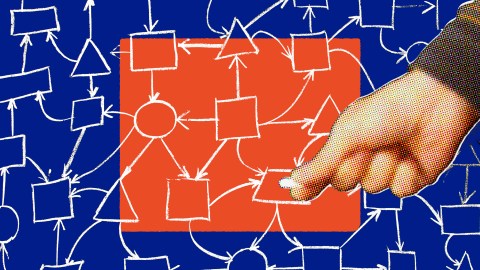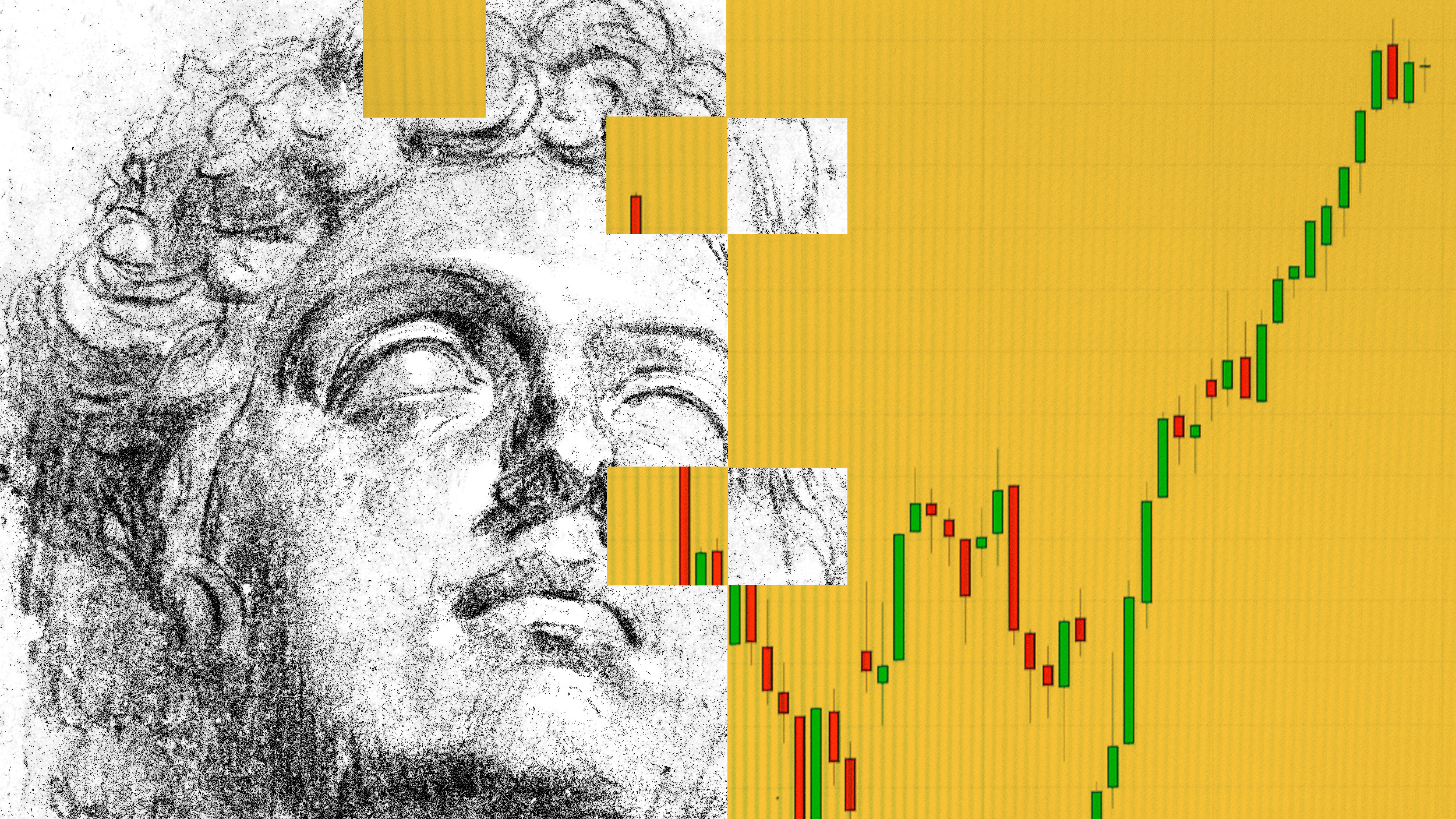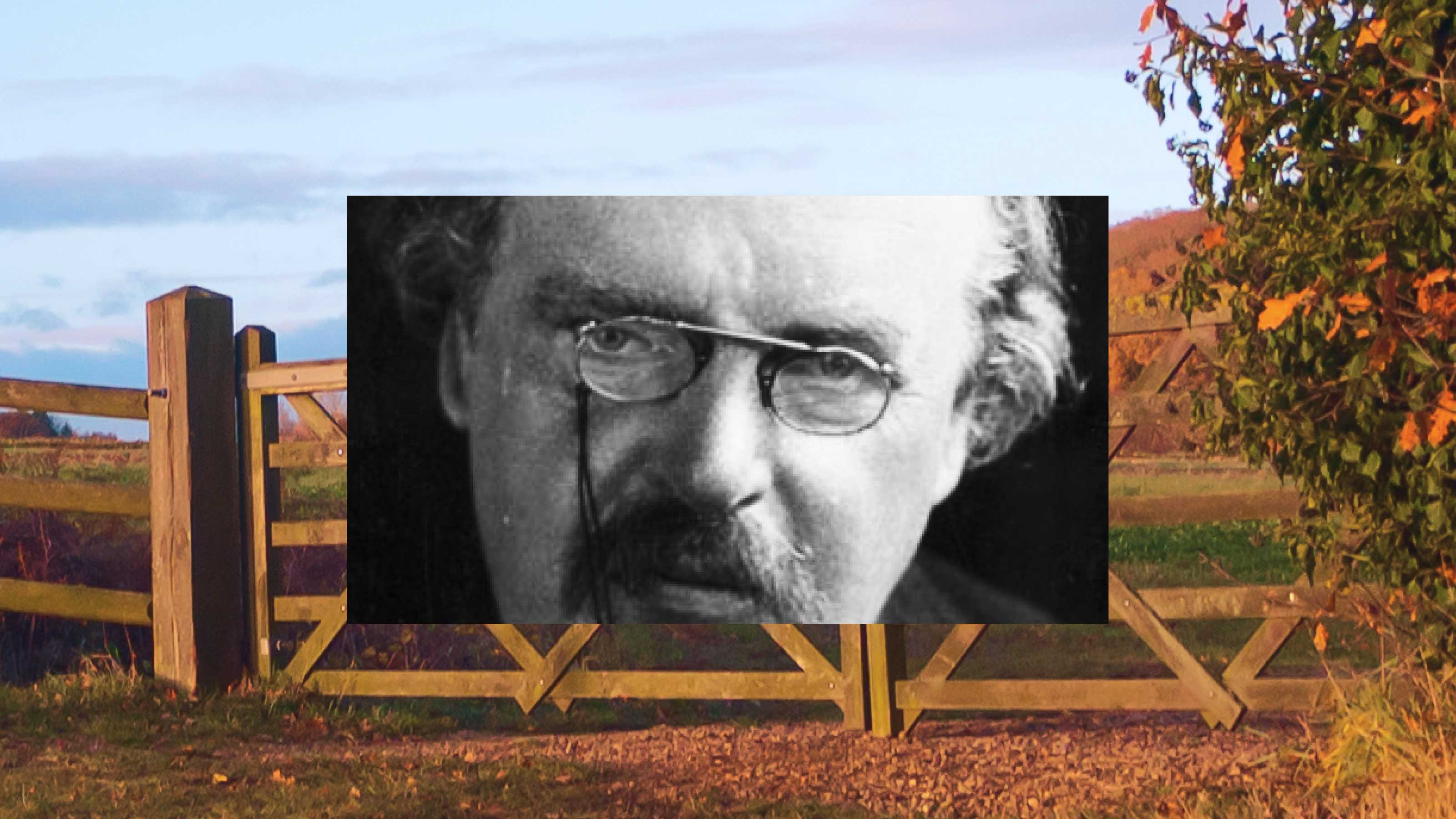How to fight the “tyranny of small decisions”

- The economist Alfred E. Kahn first coined the term “tyranny of small decisions” in 1966.
- The concept describes how a series of small choices can lead to unintended, and harmful, consequences.
- Businesses should prioritize training, ensure employees align with company goals, and consider the broader impact of their choices.
The book shop in Garrett’s local town always has beautiful displays. Every time he walks past, Garrett smiles at some quirky, cuddly toy hang-gliding over the book mountains. He pauses to take an Instagram photo of tiny robots mingling around a steampunk scene. At Christmas, the window is a carousel of festive wonder — a snowy village of cheerful snowmen and sleigh-free reindeer glowing in the twinkle of a thousand tiny, frosty suns. Garrett stands there for a full ten minutes, gawping in wistful and nostalgic wonder. He doesn’t know he’s crying.
That night, Garrett did his shopping from his sofa. He bought a stack of books for his family. He didn’t even pause for a moment as he clicked to confirm the order on his $231 Amazon basket. Twenty books ordered, all arriving the next day, and that’s his Christmas shopping done. Somewhere down the road, a twinkling bookshop closes early because they can’t afford the staff.
There are untold many stories of Garrett — people who bemoan the death of the local shop and reminisce about the days of variety and good-old-fashioned, bricks-and-mortar, shopping. The problem is that one Garrett becomes two, and two becomes a million. Another independent bookshop will close, and Jeff Bezos will write a happy email to his shareholders.
This is known as the “tyranny of small decisions.”
A slippery slope
In 1966, the economist Alfred E. Kahn first coined the term ‘tyranny of small decisions’ in an article of the same name. Kahn used this concept to describe how a series of small, individual choices could lead to an end point no one really wanted. It’s when various discrete and minor actions string together into something not desired by the decision-makers as a whole.
Kahn used the example of an essential train service in a small, remote, but inhospitable community. The train can operate through any weather conditions and all year round. When things are snowy and horrid, people will use the train. It’s crammed with grateful customers. In the sunny, blue-skied days of summer, people don’t bother — they drive a car or cycle around. Over time, the train runs out of money. The busy winter months are not enough to keep the service viable.

The “tyranny” in this case is that the majority of people in this community want to keep the service open. They need it. Yet their small decisions led to its demise. Kahn refers to this as a “market failure,” but it might equally be called a human psychological failure. The train company could hike their winter fares to pay for the summer turndown, yet customers will not pay more in the short term, even if they know they’ll be unhappy in the long term. An independent bookshop might charge higher-than-Amazon prices, and you might need to go to the shop, but that’s what keeps it open. Most people know this and appreciate it on a rational level. Yet, they would rather sit with Garrett on his sofa, saving $1.78 and with next-day delivery.
Reappraising small decisions
Kahn’s original paper was more slanted towards economic philosophy than practical tips for modern business. But the “tyranny of small decisions” idea is now a staple among many business researchers and advisors. Here are three ways that the logic behind Kahn’s idea can help your own business.
Don’t skimp on your training days. You’ve just sat at your desk with a creel of tasks to get through, and you get an email: “Morning everyone! Don’t forget to follow this link to the cyber awareness training today.” You sigh, you click the link, and seethe. Few people like training days, but if you drop them you will potentially suffer greatly for it. In 2014, a hacker group called “Guardians of Peace” stole and erased great swathes of confidential Sony data. It cost them $80 million. Sixty percent of small businesses go out of business within six months of a cyberattack. Cyber-vigilance matters, and small decisions to skimp can have huge ramifications. Buying only basic internet security might save some money. Missing or having irregular cyber-awareness training might make you popular with your team. But few businesses can survive an $80 million hack.
Don’t wag the dog. There’s a lot of exciting talk about side-project time at the moment. This is where people are given free rein to work on a product or idea that, hopefully, benefits the company. A lot of great and lucrative ideas have spawned from side-project time. But if too many people spend too much time on their own projects, then “side” becomes “main.” When individual employees make isolated decisions, without concern for an overall bigger picture, it can do one of two things: either it hamstrings the forward stride of the company or it directs it in an entirely new way. The tail wags the dog. This is known as the “path dependency” phenomenon, where each small decision subtly steers the company’s direction. It might not be very modern, and it might not be very popular, but sometimes a leader needs to lead, and employees need to toe the company line.
Apply “systems thinking.” The problem at the heart of the tyranny of small decisions is when people fail to see themselves as part of a unit. Everything we do will affect someone else, and in business, the decisions we make will make someone else’s life easier or harder. In a great interview for Big Think+, Professor of Leadership and Management at the Harvard Business School, Amy Edmondson, calls this “systems thinking.” She describes it like this:
“Systems thinking is the self-discipline to back up and say, ‘Well, what might happen later as a result of doing this now? And who and what else might be affected as a result of doing this now?’ A nurse working in a hospital ward who runs out of linens might just go next door and take some from the unit next door. She’s solved her problem, but of course she’s created a problem now for the other unit… It’s just about stepping back a little and thinking about who else and when else will this simple decision now have an impact on. And this is a way of thinking that contributes to the prevention of many failures.”





